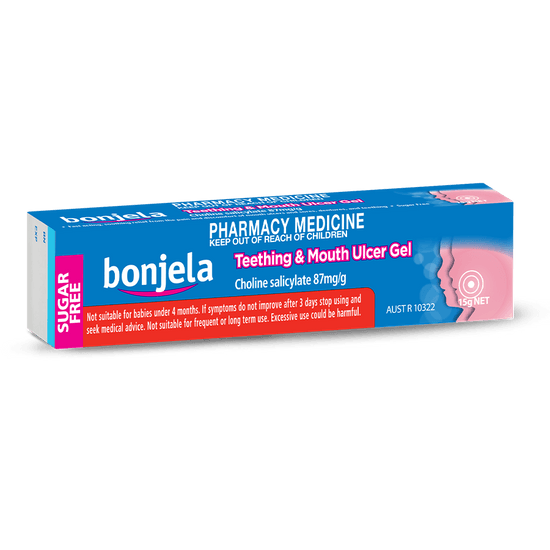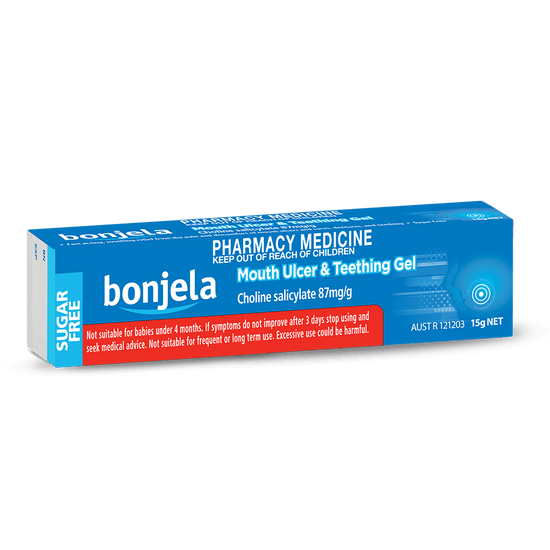
Expert in Teething and Mouth Care
Experts in Teething and Mouth Care
Fast-acting, soothing relief from the pain and discomfort associated with infant teething, mouth ulcers and dentures.

Soothing Relief from Painful Mouth and Gums
Bonjela Mouth Ulcer & Teething Gel and Bonjela Teething & Mouth Ulcer Gel are suitable for use by adults and children 4 months and above. They provide fast acting, soothing relief from the pain and discomfort associated with infant teething disorders, mouth ulcers and sores and new dentures. All Bonjela products should be used as directed on the label.
Show 1 of 2
Our products
Show 1 of 2
Teething Tips
Learn how to care for your mouth and gums with information on teething causes and treatment
Show 1 of 4
Contact Us
Got a question to ask or something to tell us? We're here for you. Please choose your preferred option.
BY PHONE
1800 022 046
BY EMAIL
Please note, your healthcare professional is best placed to provide you with advice regarding your health.




